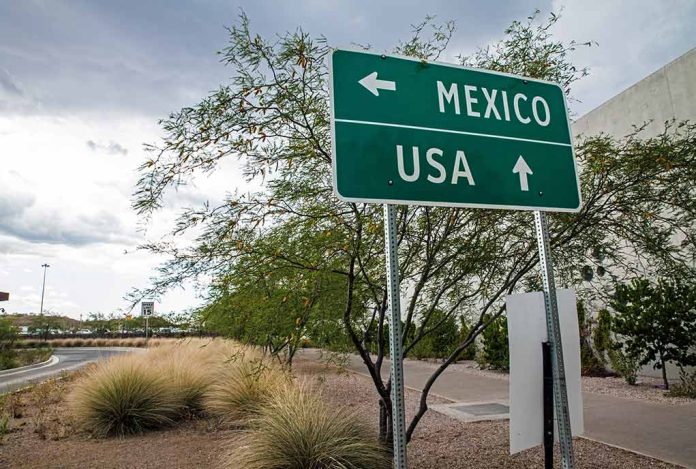🔴 Website 👉 https://u-s-news.com/
Telegram 👉 https://t.me/usnewscom_channel
Mexico braces for potential mass deportations with tent cities and military response, as Trump’s immigration policies loom.
At a Glance
- Mexico is establishing migrant attention centers along the border, starting with Juarez
- Centers will provide food, medical care, temporary lodging, and financial assistance
- 189 buses are being deployed to transport migrants to Mexico’s interior
- President Claudia Sheinbaum announced “Mexico te Abraza” contingency plan
- Mexico maintains it has not agreed to the “Remain in Mexico” policy
Mexico’s Proactive Response to Potential Mass Deportations
In a startling turn of events, Mexico is rapidly preparing for the possibility of mass deportations from the United States. The Mexican government has begun setting up migrant attention centers along the border, with the first facility being established in Juarez. This unprecedented move comes in response to President Donald Trump’s executive orders promising to deport unauthorized migrants and reinstate the controversial “Remain in Mexico” policy.
The Juarez center, capable of holding up to 2,500 people temporarily, is designed to provide comprehensive support to deported Mexicans. Services will include food, medical checkups, temporary lodging, and a $98 debit card to assist individuals in returning to their home states. This initiative is part of a larger contingency plan called “Mexico te Abraza” (Mexico Embraces You), announced by President Claudia Sheinbaum.
Mexico setting up tents for migrants deported by Trump https://t.co/eiYJThCnKh
— WKBN 27 First News (@WKBN) January 22, 2025
Expanding the Support Network
The Mexican government’s response extends beyond Juarez, with plans to establish similar centers in Tijuana, Nuevo Laredo, Reynosa, Matamoros, and other border cities. This comprehensive approach aims to create a support network capable of managing the potential influx of deportees and assisting in their reintegration into Mexican society.
To facilitate the transportation of migrants to the country’s interior, Mexico is deploying a fleet of 189 buses. This logistical support is crucial in ensuring that deportees can safely return to their home states or relocate to areas with better opportunities for reintegration.
Balancing Sovereignty and Humanitarian Concerns
While Mexico is preparing for potential mass deportations, the government has made it clear that it has not agreed to the “Remain in Mexico” policy. However, President Sheinbaum has emphasized the country’s commitment to humanitarian action, particularly for vulnerable individuals at the border.
This stance reflects Mexico’s delicate balance between asserting its sovereignty and addressing the humanitarian needs of migrants. The government has pledged to assist stranded third-country migrants while maintaining its own immigration policies.
Current Migration Trends and Preparedness
Despite the preparations for potential mass deportations, Mexican officials remain optimistic about their ability to manage the situation. Foreign Minister Juan Ramon de la Fuente has noted that current northward migration flows are at their lowest levels in recent times, with a 78% decrease compared to the previous January.
This reduction in migration flows suggests that Mexico may be well-positioned to handle potential deportations without overwhelming its resources. Nevertheless, the government’s proactive approach demonstrates a commitment to being prepared for various scenarios.
Ongoing Support for Mexicans in the United States
In addition to preparing for potential deportations, Mexico continues to provide support to its citizens living in the United States. The country’s 53 consulates across the U.S. will continue to offer legal advice and immigration referrals, ensuring that Mexicans have access to information and assistance during this uncertain period.
As both countries navigate the complex landscape of immigration policy, Mexico’s multifaceted approach – combining border preparations, humanitarian assistance, and ongoing support for its citizens abroad – underscores the intricate nature of addressing migration challenges in the region.

